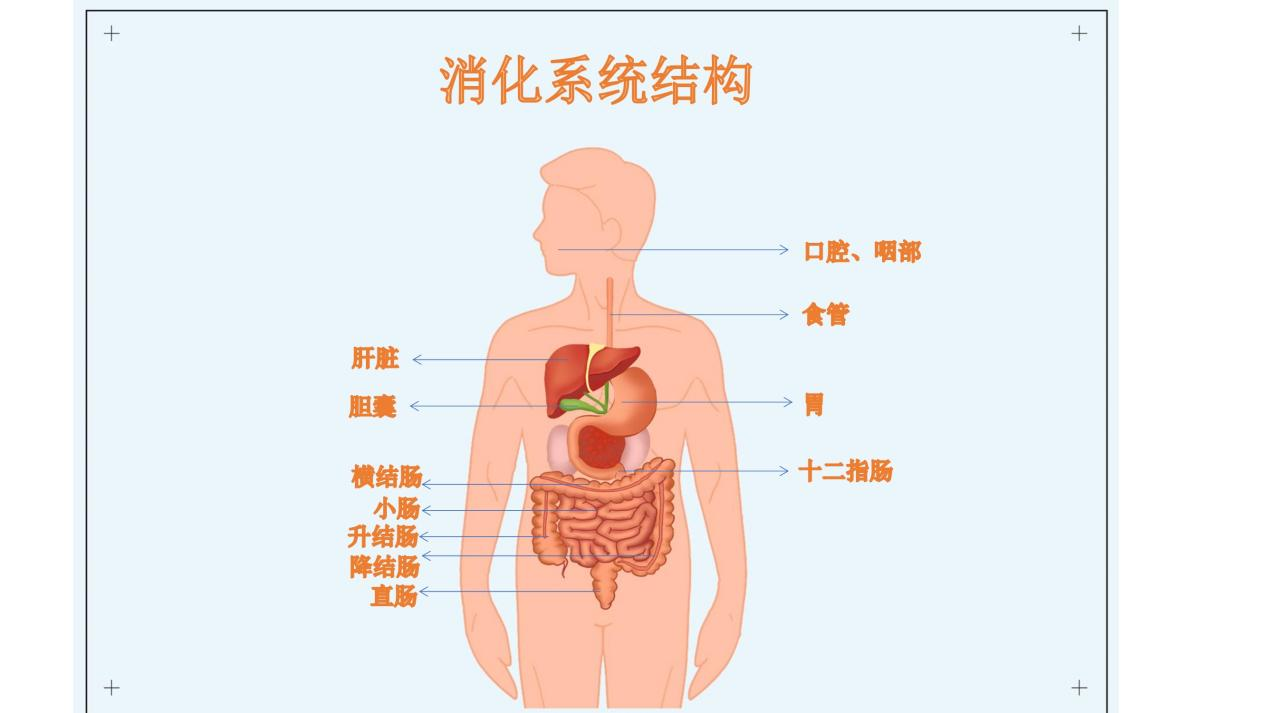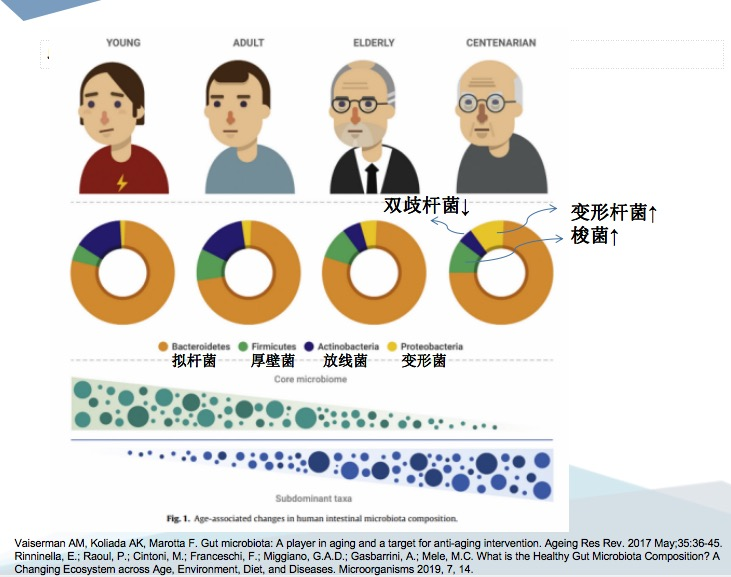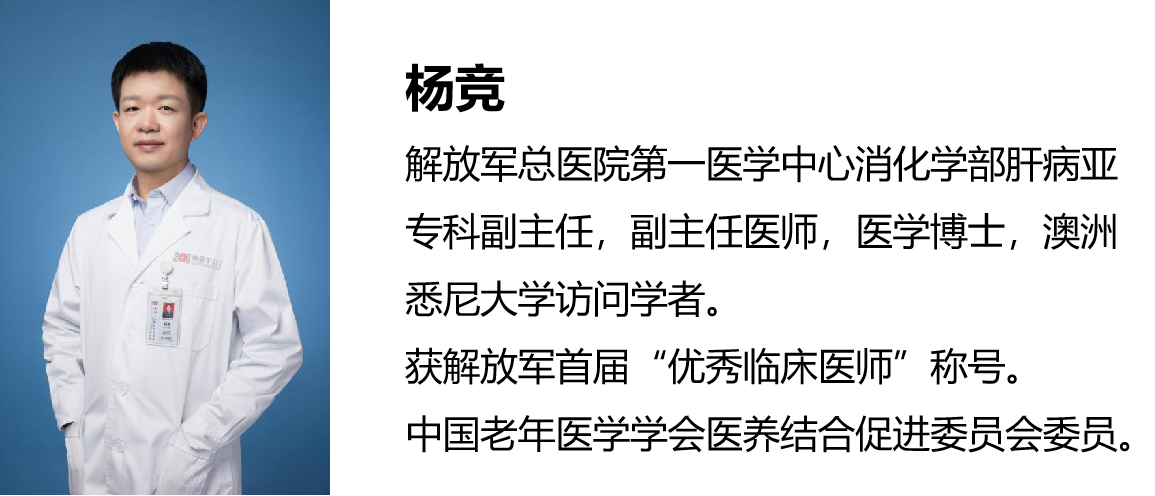Discussion on the health of digestive system in the elderly
The health of the digestive system in the elderly is an essential factor in maintaining health and vitality in the elderly. With age, the digestive system from the structure to the function of a series of aging and degradation, such as the acidity of the stomach decreased, intestinal motility slowed down and so on. These changes have a certain impact on the uptake, absorption, and utilization of nutrients, and directly or indirectly affect the occurrence and development of digestive diseases in the elderly. At the same time, with the acceleration of population aging, the elderly are increasing year by year, and the health problems of the digestive system of the elderly are becoming more and more common. Understanding the characteristics of the digestive system of the elderly is helpful to improve the quality of life and health of the elderly.

First, the composition and characteristics of the digestive system of the elderly
The human digestive system includes the digestive tract and digestive glands, and the digestive tract is considered a system of pipes that includes various organs from the mouth to the anus. The digestion of food, the absorption of nutrients, and the discharge of waste all occur in this system. The digestive system of the elderly is not much different from that of the young in terms of basic structure, but there is a big difference in actual function.
1. Mouth, pharynx and esophagus
The mouth contains a variety of secretory glands, whose secretory fluid is combined into saliva, which is fully integrated with food through chewing and wrapped in food, and then enters the esophagus through swallowing. The esophagus is the tube that carries food to the stomach and does not itself secrete digestive juices. When we eat, in order to protect the digestive line from being damaged by incoming food, any food entering the esophagus will be coated with saliva to protect the esophagus from food corrosion. With the increase of age, the elderly's salivary gland secretion is reduced, swallowing function is degraded, esophageal dynamic disorders and other problems occur, making dysphagia, aspiration, food excretion difficulty, esophageal injury and other diseases in the elderly population.
Step 2: Stomach
The stomach is one of the most important organs in the digestive system, secreting gastric acid to further break down food into small particles, which work with digestive enzymes for digestion. The secretion of gastric acid and pepsinogen in the elderly will gradually decrease, leading to a decline in the digestive function of the stomach, which is one of the reasons for functional dyspepsia in the elderly. At the same time, the degradation of gastric mucosa defense-repair ability and delayed emptying may be an important reason for the high incidence of chronic erosive gastritis and gastric ulcer in the elderly.
3. Small Intestine
The small intestine is the longest organ in the digestive system, extending up to 4-6 meters in length. It is the place where the broken down food in the stomach is broken down into smaller molecules and fully absorbs nutrients. It also secretes a large amount of digestive fluid to digest food. With the increase of age, the absorption function of the small intestine, especially the absorption capacity of fat and calcium, is significantly reduced, so fatty diarrhea is easy to occur when eating a large amount of fat, and the reduction of calcium absorption will increase the risk of osteoporosis in the elderly. In addition, the composition of intestinal flora in the elderly is significantly different from that in the young, as shown by a decrease in the proportion of bacteria with anti-inflammatory effects, such as bifidobacterium, and an increase in the proportion of some pro-inflammatory bacteria, such as enterobacterium, which leads to the occurrence of intestinal flora ectopia and peritonitis in the elderly under stress.
4. Large intestine and rectum
The large intestine and rectum solidify food debris and waste by absorbing residual water and discharging it through the anus. The large intestine and rectum of the elderly have decreased water absorption capacity and weakened motility with aging, which leads to flatulence and constipation.
5.liver
The liver is one of the important organs of human metabolism, involved in vitamin and hormone metabolism, secretion and excretion of bile, and decomposition of toxic metabolites. Liver aging is mainly manifested as a decrease in liver weight, reduced liver blood flow and reduced enzyme activity. Therefore, the liver tolerance of the elderly is reduced, and it is easy to have liver function impairment or even liver failure when suffering from drugs, trauma, shock and critical illness.
Talking about Digestive System health in Old Age (Part 2)
Two.Characteristics of digestive diseases in the elderly
1. Symptoms and signs are not typical
The elderly have slow nerve response, low sensitivity, high pain threshold, strong tolerance to pain, and often lack typical symptoms and signs after illness, or cover up the severity of the disease. In addition, the elderly gastrointestinal peristalsis is slowed down, such as gastrointestinal bleeding, often can not occur in time to hematemesis or excretion from the stool, to early diagnosis and correct treatment inconvenience.
2. The course of disease is long and the progress is fast
The digestive diseases of the elderly have a long course of disease, chronic recurrent attacks, often insidious onset, and mild symptoms. In the elderly, the repair function of the body declines, the reserve function of the organs is insufficient, and the disease often progresses rapidly.
3. There are many complications and high mortality
The compensatory capacity of the organs of the elderly is poor, and the diseases of the heart, lung, kidney and other important organs are often combined, which greatly increases the risk of complications and complications in the case of multiple diseases. In the process of diagnosis and treatment of digestive tract diseases in the elderly, it is necessary to be vigilant about the occurrence of multiple organ failure.
4. Drug treatment is prone to toxic side effects
The function of liver and kidney in the elderly has different degrees of decline, and there are obstacles in the absorption and metabolism of drugs, which prolongs the half-life of drugs in the body. In the process of medication for elderly patients, the dosage should be adjusted or even disabled according to the function of organs, and attention should be paid to drug interaction when multiple drugs are used.
Third, the elderly digestive system problems coping measures
1. Diet: Dietary nutrition is the cornerstone to ensure the health of the elderly. Due to the deterioration of taste and smell, the decline of chewing function, the decrease of food intake, and the poor digestion and absorption, the elderly population is at a higher risk of malnutrition. According to the "Chinese Dietary Guidelines for the Elderly (2016)"; recommendation, the elderly should choose soft food, eat less and more meals, pay attention to food diversity, balanced nutrition. At the same time, it is recommended that the elderly moderately drink more water, at least 1200ml of water per day (if combined with other underlying diseases such as heart disease, or before and after exercise, the amount of water can be adjusted as appropriate). In addition, the elderly should prevent muscle decay, appropriately increase animal liver, egg yolk and other foods with high vitamin D content, appropriate exercise, can carry out resistance exercises such as lifting dumbbells and pulling elasticity; Monitor weight changes regularly and maintain an appropriate weight.
2. Medication guidance. Proton pump inhibitors (PPIs), gastrointestinal motogenic drugs, and gastric mucosal protective agents are commonly used drugs for digestive system diseases, while gastroesophageal reflux disease, peptic ulcer, chronic gastritis, and gastrointestinal bleeding are relatively common in the elderly population, and the elderly often have multiple chronic diseases, which may lead to multiple drug use problems.
1) Proton pump Inhibitor (PPI) : including omeprazole, Rabeprazole, Lansoprazole, etc. Long-term use of PPI may increase the risk of osteoporosis and fracture in the elderly, and the use of PPI for peptic ulcer treatment should be reduced or discontinued for more than 8 weeks. If long-term or high doses of PPI are expected, bone mineral density should be regularly monitored and, if necessary, combined with anti-osteoporosis therapy. When combined with other drugs, the combination of PPI and warfarin will increase the risk of bleeding, the combination of statin may increase the blood concentration of the latter, and the combination of clopidogrel can reduce the efficacy of the latter and increase the risk of thrombosis.
2) gastroenterokinetic drugs: including dopamine receptor antagonists such as domperidone and etopride, and 5-HT4 receptor agonists such as moxapride and Cisapride. When domperidone is combined with anticholinergic drugs, the antagonistic reaction will occur and the efficacy of Domperidone and anticholinergic drugs will be weakened. In combination with diazepam and lithium, it can cause extrapyramidal symptoms; Combined with erythromycin, fluconazole, voriconazole, amiodarone and other CYP3A4 suppressant preparations can prolong the Q-T interval and cause serious arrhythmia, so the combination is contraindicated. Cisapride should not be used in combination with drugs that can prolong Q-T interval, such as macrolides (erythromycin, clarithromycin, etc.), triazole antifungal drugs (itraconazole, fluconazole, etc.) and amiodarone, which may increase the risk of serious arrhythmias such as ventricular fibrillation and tip twist ventricular tachycardia.
3) Gastric mucosal protective agents: such as sulfoaluminum, bismuth potassium citrate, colloidal bismuth pectin, Tepredone, polyprezine, etc. Sulfoaluminum needs to play a role in acidic conditions, and has an antagonistic effect with PPI, if combined use should be at least 30min interval. Tipredone in combination with CYP2C19 inhibitors such as fluvastatin, lovastatin, indomethacin, fluconazole, voriconazole, amiodarone may affect its efficacy.

3.Improve your lifestyle. The elderly should avoid bad habits, such as smoking, drinking alcohol, drinking a lot of coffee or tea, which can lead to increased gastric acid secretion and stimulate the gastric mucosa, thereby causing problems such as indigestion. In addition, due to the decline of swallowing reflex in the elderly, food aspiration is easy to occur, and old age is an independent risk factor for aspiration in the elderly, and aspiration pneumonia caused by aspiration seriously affects the prognosis of the elderly and even endangers their lives. Elderly people with gastroesophageal reflux should maintain an upright position after eating or walk after meals, avoid eating within 2 to 3 hours before going to bed, raise the head of the bed 15° to 20° during sleep, and lie on the left side; Instruct the elderly to eat liquid and solid food alternately, control the total amount of food, eat a small number of meals, and avoid eating a large amount of food in a short time. If coughing, hoarseness or shortness of breath occurs during eating, stop eating immediately.
In summary, the structure and function of the digestive system itself undergo a series of changes with aging, which has a certain impact on the uptake, digestion and absorption of nutrients. The elderly population has decreased organ reserve function, especially when combined with systemic diseases (such as cardiovascular disease, diabetes, respiratory failure, infection, etc.) or digestive system itself diseases, digestive disorders and malnutrition are prone to occur. Diet, exercise, lifestyle habits and standardized drug use are important measures to prevent and treat digestive problems in the elderly, and should be an important part of a healthy life for the elderly.
References:
1. Heazlewood V, et al. Age-related changes to human gastrointestinal tract. Gut, 2013, 62(10):1424-1433.
2. Zhang Yisheng, ZHUANG Xiaole, Chen Yu. Nutrition and digestive tract health in the elderly. Chinese Journal of Gerontology,2014,33(9):2439-2442.
3. Yang G, et al. Epidemiology of gastrointestinal cancers in China: Current status and perspectives. Journal of digestive diseases, 2020, 21(6): 269-276.
4. Khan A, Carmona A, Traube M. Dysphagia in the Elderly[J]. Clin Geriatr Med, 2014,30:43-53.
5. Chinese Dietary Guidelines for the Elderly (2016 edition)
6. Chinese Expert Consensus on the safety management of multi-drug use in frail elderly people in hospitals and nursing institutions (2022 edition)[J]. Chinese Journal of Cardiology, 2022, 27(5): 403-409
7. Expert consensus on the safety management of multidrug use in elderly patients with senile comorbiditis [J]. Chinese Journal of Healthcare Medicine, 2021, 23(5): 548-554
8. Chen Minmin, ZHENG Songbai, XIAO Li, et al. Study on histological and ultrastructural changes of pyloric gland in gastric antrum with aging [J]. Chinese Journal of Geriatrics, 2014,33 (8) : 887-890. (in Chinese)
9. Biagi E, Candela M, Turroni S, et al. Ageing and gut microbes: Perspectives for health maintenance and longevity[J]. Pharmacog-ical Research, 2013,69 (1) : 11-20. (in Chinese)
About the author:

(The opinions expressed are solely those of the author. Some pictures in this article are from the Internet, if there is infringement, please contact to delete)

